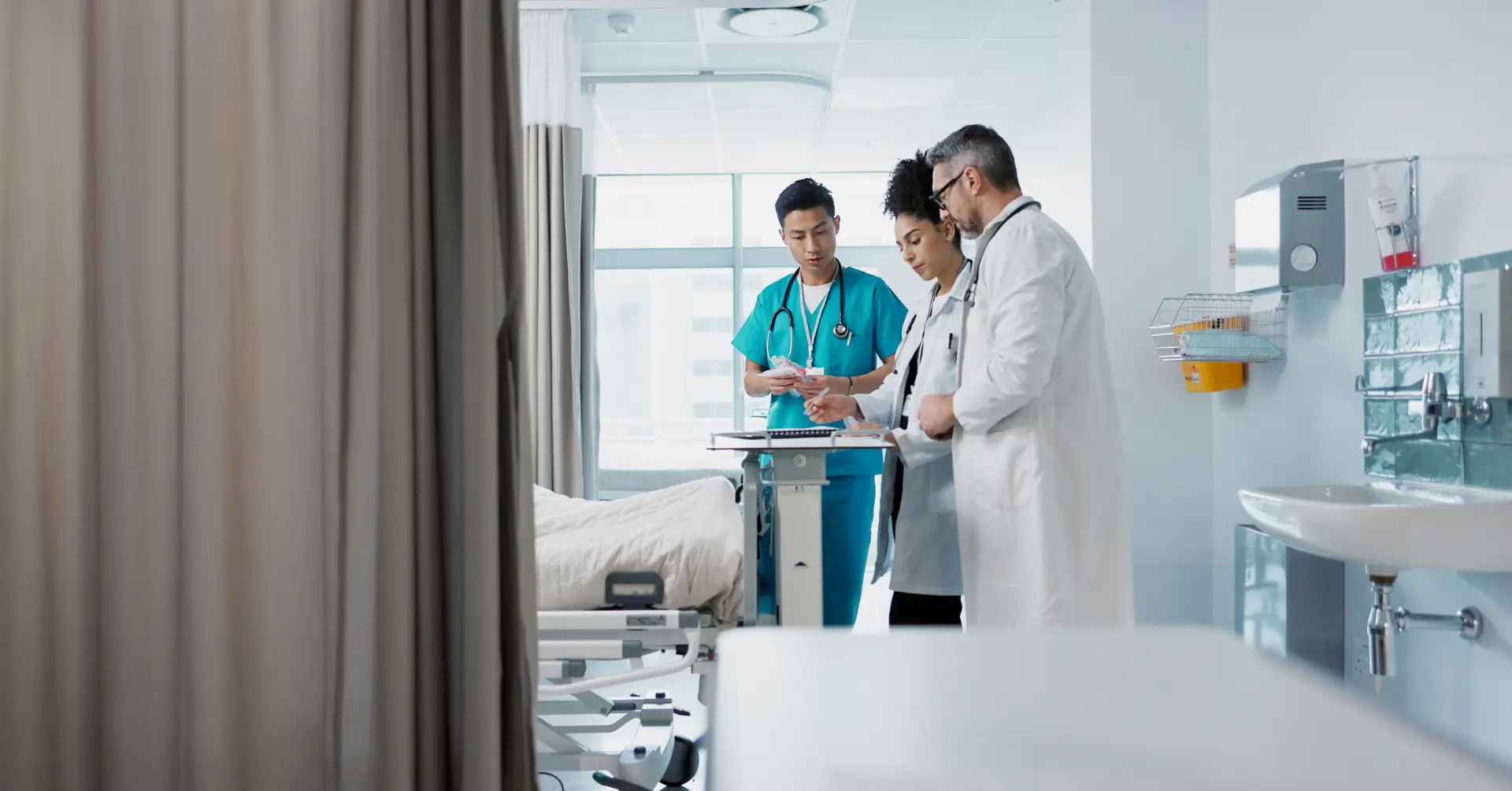The current clinical workforce encompasses five generations, now that Gen Z is slowly starting to trickle in. Believe it or not, that leaves the possibility of having grandparents and grandchildren in the same workplace.
While such a broad generational range comes with challenges, each generation offers so much to the practice of medicine, and we can all learn from one another.
What Are the 5 Generations?
Silent Traditionalists (Born Before 1945)
Silent Traditionalists are a combination of the Greatest Generation (1901–1924) and the Silent Generation (1925–1945). They lived through the Great Depression and two World Wars. Traditionalists are becoming scarcer in the current health care workforce and may be dealing with health concerns. As a result, they may lack the stamina to work long hours but still want to remain employed, whether out of necessity or by choice.
As a group, Traditionalists tend to be characterized as dependable, straightforward, tactful, and loyal, with respect, recognition, and adding long-term value to the company as primary drivers.
Baby Boomers (Born Between 1946-1964)
Baby Boomers were born during a period of growing prosperity and increased birth rates following World War II. The sexual revolution of the 1960s, the Vietnam War, the Civil Rights movement, and Watergate shaped their worldview. Boomers currently make up over 30 percent of the American population, and a large number (65 percent) plan to work past the typical retirement age of 65.
Broad stroke characteristics include being upbeat, competitive, and team-focused with a high value placed on achievement, recognition, and efficiency.
Gen X (Born Between 1965-1980)
Gen Xers were the “latchkey kid” generation (children who came home from school but didn’t find a parent there because of a dual-income household) and are sometimes considered the “middle child” generation sandwiched between two larger generations, Boomers and Millennials. The AIDS pandemic, the fall of the Berlin Wall, and the dot-com boom all impacted their viewpoint.
In a shift from Traditionalist and Boomer motivators, this group tends to place a higher priority on work-life balance, and personal and professional interests.
Millennials (Born Between 1980-1995)
Millennials, sometimes called Generation Y, are digital natives, having come of age during extraordinary technological advancement. Thus, their communication style leans toward email, text, and instant messages. They also experienced many tumultuous issues that impacted their worldviews, such as 9/11, school shootings, and terrorist attacks.
Currently, Millennials constitute the largest part of the American population. By 2025, they will comprise up to 75 percent of the global workforce. By 2050, more than 72 million millennials will be in the U.S. alone.
Millennials have a reputation for being accountable, competitive, civic- and open-minded, and goal-oriented. They also have a wider range of ethnic backgrounds than prior generations, creating a more general acceptance of diversity.
Gen Z (Born Between 1996-2012)
Gen Z is the newest generation to enter the American workforce. They are the most racially and ethnically diverse of all the groups and the first generation where most can’t recall a time without technology or the internet.
Gen Zers grew up in a post-9/11 and post-Great Recession society. Because of this, common characteristics are entrepreneurial, progressive, and creative and the group seems to be motivated by diversity, personalization, and individuality.
With Baby Boomers retiring at a rate of 10,000 people per day and Gen X starting to retire in the next ten years, Gen Z will become the mainstay of the health care workforce, making up twenty-five percent.
Generations Are Not All Alike
A generation typically has shared values and worldviews. However, those change as each new generation comes along, shaping the workplace.
While we celebrate the uniqueness and diversity of each generation, all too often, age-related stereotypes impede collaboration and productivity.
Health care leaders should foster a culture that prizes the abilities, experience, and knowledge each generation brings and that attracts and supports all ages.
Generationally varied workplaces can capitalize on their diversity, recognizing differences as strengths to result in a more productive, collaborative, and innovative team.
Multigenerational Clinical Collaboration
How does a multigenerational clinical workforce achieve high levels of collaboration and productivity? It starts by approaching clinicians of all generations with respect, valuing their knowledge, expertise, and experience regardless of age.
A multigenerational workforce also includes valuing assets, such as skill diversity, and professional performance and quality of patient care.
Skill Diversity
Each part of the five-generation workforce brings a surplus of complementary abilities, skill sets, and networks to a unit.
Professional Performance and Quality of Patient Care
Multigenerational collaboration increases two-way mentorship opportunities and promotes the transfer of valuable skill sets. The more skills mastered, the higher clinical performance and quality of patient care improves.
When managing a generationally diverse clinical workforce, age inclusion must be part of a hospital’s overall employment strategy. That involves implementing practices that embrace age-related differences, cultivate a positive age-diverse climate, and reduce generational divides.
It also means creating an environment that supports open communication, values each person’s opinion, and welcomes feedback. People from different generations think differently. While that leaves room for conflict, when well-managed, it can lead to new levels of interpersonal relationships and heightened productivity.
Serving the Multigenerational Patient Population
The patient population has a similar multigenerational makeup, which makes being part of a multigenerational work environment more advantageous. It enables clinicians to foster a greater connection and understanding of others in different age groups. It also provides opportunities to better match and prepare for generational expectations, norms, and communication preferences.
Conclusion
While we cannot deny that generational differences exist in our clinical workforce, organizations should celebrate the valuable experiences, expectations, and styles of each as a source of strength.
By rejecting preconceived stereotypes and embracing open communication, individualism, and collaboration, you will form a successful clinical team that utilizes the knowledge and viewpoint of each member to deliver high-quality patient care cooperatively and effectively.






